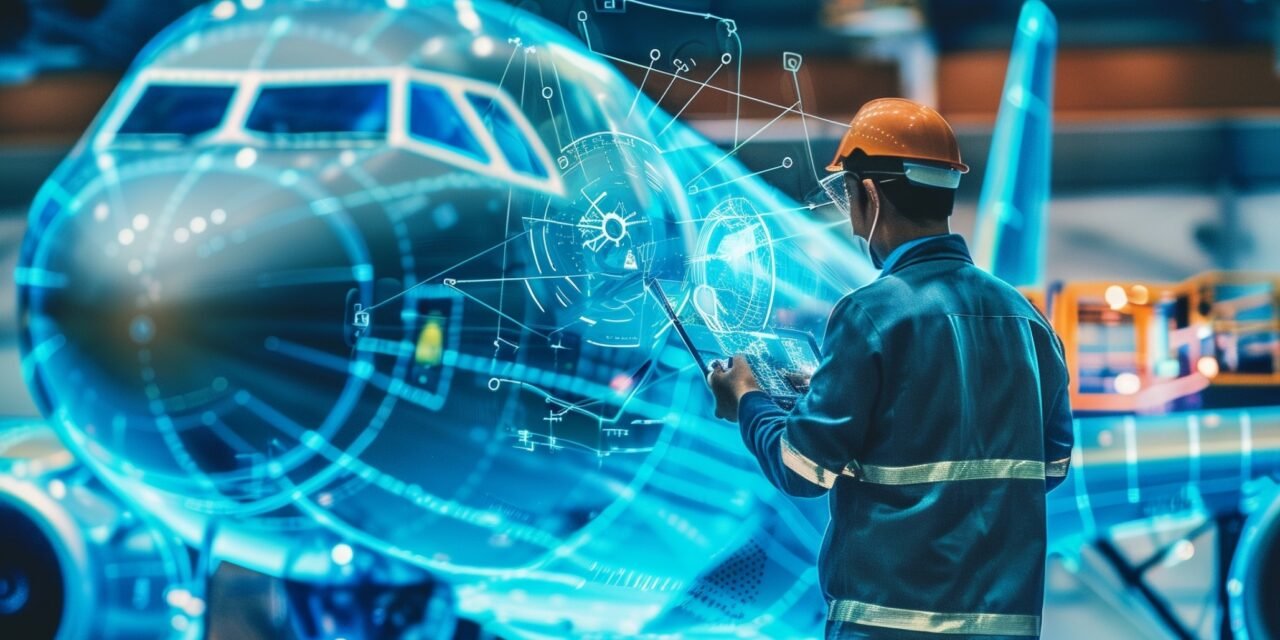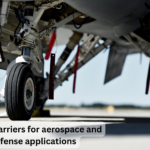Artificial Intelligence (AI) plays a pivotal role in optimizing aircraft operations and performance by enabling smarter decision-making, improving efficiency, and enhancing safety across various aspects of aviation. Here’s how AI is transforming the industry:
1. Flight Operations Optimization
- Predictive Maintenance:
- AI algorithms analyze data from sensors on aircraft to predict when components will require maintenance, reducing downtime and preventing failures.
- Early detection of wear and tear ensures optimal performance and extends the life of parts.
- Fuel Efficiency:
- AI optimizes flight routes, altitudes, and speeds by analyzing weather patterns, air traffic, and fuel consumption data.
- Airlines use AI to reduce fuel costs and emissions, aligning with sustainability goals.
- Traffic Management:
- AI-powered air traffic management systems streamline operations by forecasting congestion and optimizing airspace usage.
2. Pilot Assistance and Automation
- Autonomous Systems:
- AI supports automated decision-making during critical phases of flight, such as takeoff, landing, and emergencies.
- Advanced autopilot systems powered by AI improve safety by minimizing human errors.
- Pilot Training:
- AI-driven simulators provide adaptive training, analyzing pilot behavior to identify weaknesses and customize training programs.
- Enhanced Decision Support:
- AI assists pilots by providing real-time insights, such as optimal rerouting during adverse weather or mechanical issues.
3. Passenger Experience Enhancement
- Dynamic Pricing:
- AI analyzes market trends and passenger data to optimize ticket pricing, balancing demand and revenue.
- Personalized Services:
- AI customizes in-flight entertainment, meal preferences, and seating arrangements based on passenger profiles.
- Efficient Boarding and Check-In:
- AI-powered facial recognition and biometric systems streamline boarding processes and reduce waiting times.
4. Aircraft Design and Manufacturing
- Optimized Aerodynamics:
- AI helps design more efficient aircraft by simulating and optimizing aerodynamics and structural integrity during development.
- Additive Manufacturing:
- AI controls 3D printing processes to create lightweight, durable components that improve aircraft performance and reduce weight.
- Quality Assurance:
- AI-driven inspection systems detect defects in manufacturing with higher accuracy and speed than manual inspections.
5. Real-Time Monitoring and Safety
- Health Monitoring:
- AI continuously monitors aircraft systems, identifying anomalies that may indicate potential issues.
- Weather Prediction:
- AI improves the accuracy of weather forecasting, enabling better pre-flight and in-flight planning to avoid turbulence and storms.
- Emergency Management:
- AI systems assist in decision-making during emergencies, such as rerouting or system reconfiguration in case of failures.
6. Sustainability Initiatives
- Carbon Emission Reduction:
- AI analyzes operational data to identify areas for reducing greenhouse gas emissions.
- Optimized Airport Operations:
- AI optimizes ground handling and turnaround times, reducing idle engine emissions during taxiing.
7. Air Traffic Management and Urban Air Mobility
- Next-Generation ATC Systems:
- AI-powered systems predict traffic patterns and deconflict airspace in real time, enhancing safety and efficiency.
- Urban Air Mobility (UAM):
- AI is critical in managing autonomous drones and air taxis, ensuring safe and efficient operations in complex urban environments.
Impact on Aviation
AI is enabling a paradigm shift in aviation, making it safer, more efficient, and sustainable. By leveraging AI, airlines and manufacturers can reduce costs, improve reliability, and enhance the overall flying experience, ensuring aviation remains a cornerstone of modern global transportation.













